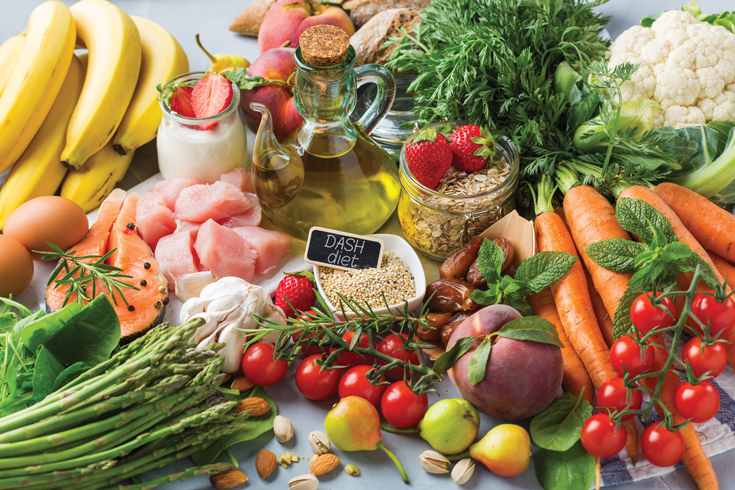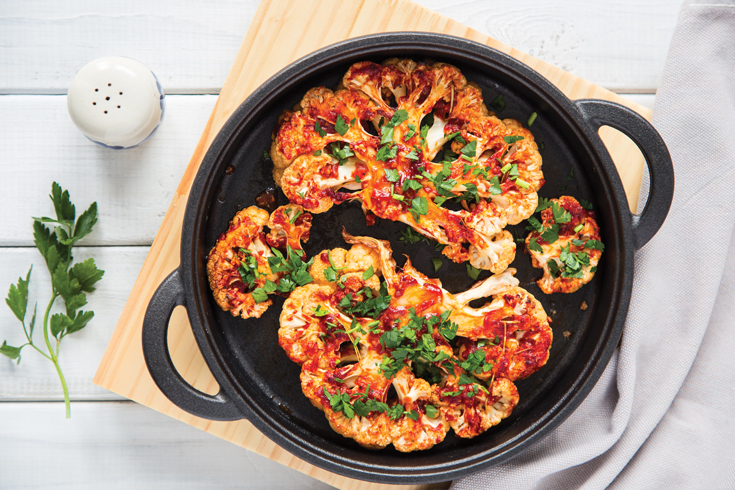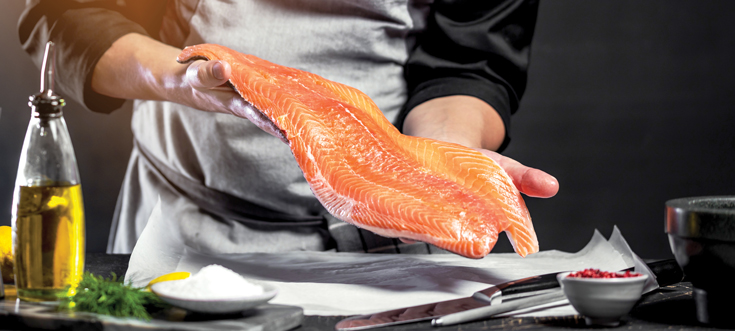Whether your goal is to re-invent yourself through a trimmer you or simply looking to adopt healthier eating habits and improve overall health, choosing the right diet that works for your lifestyle and nutritional needs, and most of all, ENJOY, is what’s going to yield results.
Hands down the most horrid, inhumane thing you can do to someone (especially a hardcore foodie) on a mission to shed pesky kilos is drop them in the middle of any random Malaysian food court. The clanking sounds of fiery woks in action … the smokey aroma of stir-fried char kuey teow and mamak mee goreng … umami-oozing chicken rice … roti canai drowned in mouthwatering fish curry, wafting from every corner – it’s enough to wheedle and annihilate the strongest of will powers, bringing gung-ho dieters and best laid plans to their knees.
Indeed, Malaysia is easily an epicurean’s idea of ‘heaven’, proudly home to a smorgasbord of sublime, unique delicacies steeped in storied historical past and cultures, perfected over centuries – which makes sticking to a diet an excruciating uphill battle.
But, as the old adage goes, ‘Where there’s a will, there’s a way’. Determination, focus and dogged discipline are indispensable ingredients for success in one’s weight loss journey. While there’s no shortage of new fad diets, “miracle pills” and elixirs popping up ever so often, supposedly proven by celebrities and the who’s who of Hollywood, the simple yet brutal truth is there really are no short cuts to effective, healthy weight loss, especially if you plan on keeping the kilos off for the long term.
Whether your goal is to re-invent yourself through a trimmer fitter you – beaming with all-new self-confidence – or flaunt your figure in that itsy bitsy bikini on your next vacation, or simply looking to adopt healthier eating habits and improve overall health, choosing the right diet that works for your lifestyle and nutritional needs, and most of all, ENJOY – which you’d be more than happy to keep up with in the long run – is what’s going to yield results. Remember, it’s a marathon, not a sprint.
Mediterranean Diet
Touted as one of the best, healthiest diet plans for weight loss and maintaining overall heath, the Mediterranean diet is inspired by traditional Greek and Italian cuisines, and regions that border the Mediterranean Sea. The low-carb, high-protein diet, rich in fibre, vitamins and minerals, largely comprises whole grains (eg buckwheat, barley, millet, spelt), legumes (eg lentils, chickpeas), vegetables, fruits, nuts, seeds, herbs and spices. The primary source of added fat is the heart-healthy olive oil, which lowers total cholesterol and low-density lipoprotein (LDL or “bad”) cholesterol levels. Salmon, tuna, mackerel, sardine and other fatty fish rich in Omega-3 are included; these polyunsaturated fats help fight inflammation in the body, and help decrease triglycerides, reduce blood clotting, and lower the risk of stroke and heart failure. The diet does not recommend processed foods, red meat, and sugar (excessive use) as these can contribute to chronic illnesses such as heart disease and diabetes.

DASH Diet
It may sound like a zippy godsend of an answer to all your weight woes, but nope (sorry to burst your bubble!). The DASH diet (stands for Dietary Approaches to Stop Hypertension) was originally designed in the 1990s to help treat or prevent high blood pressure (hypertension). It comprises foods that are loaded with potassium, calcium and magnesium, which collectively help regulate blood pressure. A clear distinction that separates the DASH diet from others is that it strongly limits your salt intake per day to just one teaspoon or less, which can help control hypertension. Saturated fat and added sugars are also discouraged. Studies have in fact shown that the DASH diet can bring down blood pressure in a matter of two weeks, and also lower low-density lipoprotein (LDL or “bad”) cholesterol levels – the two leading risk factors for heart disease and stroke. Rich in vegetables, fruits and whole grains, the diet promotes fat-free or low-fat dairy products (rather than full-fat), poultry, fish, beans and nuts. As low-fat dairy and lean protein are less dense calorically, this may contribute to an overall calorie deficit, translating to weight loss.

Plant-Based Diet
Not to be confused with a vegetarian or vegan diet (which shuns any form of animal product, including eggs, dairy and honey), the plant-based diet is pretty flexible; while it predominantly comprises food made of plants (eg fruits, vegetables, nuts, seeds, whole grains, legumes), it allows the freedom to include poultry, beef, eggs, fish and dairy products, so long as most of your nutrient intake – at least two-thirds of each plate of food you consume – comes from plant-based food.
Since plant-based foods tend to be nutrient-dense and crammed with fibre, it keeps you feeling satiated longer, thus prevent mindless snacking and curb cravings. In fact, according to a mass study, overweight/obese individuals who followed a plant-based diet for a period of six months lost about 11kg on average.
If you’re wondering if a plant-based diet will provide sufficient protein for the day, yes – foods like tofu, lentils, nuts, beans, quinoa and seeds are rich sources of protein. Also, keep in mind that you can always add eggs, chicken, fish, beef or dairy to your diet, as long as plant-based foods remain the stars of the show.

Whole Food Diet
A whole food diet isn’t really a ‘diet’ per se with restrictive rules, it is more to do with how you perceive food in general. It promotes clean, healthy eating, meaning the goal is to eat whole foods (unprocessed foods) such as fresh vegetables and fruits, nuts, seeds and legumes; or minimally processed foods, eg grains that have been turned into flour, cut vegetables and roasted nuts packed for convenience.
While the whole food diet focuses primarily on plant-based ingredients, it allows limited fresh animal products such as poultry, seafood, eggs and dairy. Its defining characteristic is that it excludes refined (processed) foods like added sugars, flour, bottled sauces and processed oils. By staying away from highly processed foods that have higher calorie counts due to added sugar and fats (eg fast food, junk food, fizzy drinks, candy bars, etc), your body benefits from nutrients of fresh whole foods like vitamins and minerals, enzymes and antioxidants (to neutralise free radicals in the body). The diet’s high fibre content, plus the exclusion of processed foods, is a winning formula to rid inches off your waistline. Not only that, it can also lower and reduce risk of developing heart disease, certain cancers, cognitive decline and diabetes. It is highly recommended that you cook your meals from scratch as this gives you more control over the type and quality of ingredients used.
Pescatarian Diet
If dishes like sashimi, grilled fish, succulent pan-seared scallop, Gambas al Ajillo (Spanish garlic prawn shrimp) make your heart flutter with inexplicable excitement, then a pescatarian diet could be the best fit for you. While being mostly vegetarian, the pescatarian diet emphasises on seafood as the main source of protein. Seafood in general (particularly salmon, mackerel, herring, sardine, tuna, oysters, black cod) contains higher levels of Omega-3 (compared to white or red meat), which reduce plaque build-up in the arteries that could lead to cardiovascular disease and strokes. The diet can also potentially help reduce the risk of certain chronic diseases, improve kidney function, and combat depression, dementia and arthritis.
Along with seafood, the pescatarian diet comprises fresh vegetables, fruits, nuts and whole grains, which are high in fibre; this helps prolong the feeling of satiety, thus keeping you from reaching for that “harmless” cookie jar or bag of potato chips. A study published in the International Journal of Obesity in 2007 found that eating three servings of fish per week for four weeks on a low-calorie diet actually led to around 1kg more weight loss than a similar diet without fish.

Regardless of which diet you eventually settle on, bear in mind that these foods are only as healthy as how they’re prepared; steaming, poaching, baking and grilling are your best bets for optimal results. And make sure you include some form of physical activity as exercise increases metabolism and lean body mass, even helps increase calorie-burn. Plus, nothing beats that sense of “euphoria”, the burst of happiness that follows a workout sesh, thanks to a cocktail of ‘feel-good’ chemicals like endorphins, serotonin and dopamine. Not only that, exercise does wonders for brain health, helping to relieve anxiety and depression, preserve brain function and prevent cognitive decline.

(Note: Consult your health practitioner before starting any new diet plans.)


